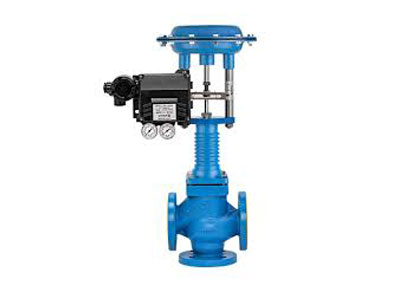Which Valve Is Used For Flow Control?
Key Takeaway
Various types of valves are used for flow control, but the most common are ball valves, globe valves, and needle valves. Ball valves are widely used for their durability and cost-effectiveness, allowing for precise control over fluid flow. Globe valves are used when fine control over flow rate is required, especially in systems that need frequent adjustments.
Needle valves are used in applications where very fine adjustments are necessary. The choice of valve depends on factors like flow capacity, pressure conditions, and the level of precision needed. In most industrial settings, flow control valves are chosen based on these requirements to maintain the optimal flow rate in the system.
The Best Valve Types for Flow Control Applications
Several valve types are commonly used for flow control in fluid systems. These include:
1. Ball Valves: Known for their quick operation, ball valves are often used for on/off flow control but can also be used to regulate flow when needed. They are best for high-flow applications.
2. Globe Valves: These are often used for precise flow control, especially in systems requiring frequent adjustments. They offer excellent throttling capabilities, making them ideal for controlling flow in pipelines.
3. Needle Valves: These provide fine control over flow rates, making them suitable for applications that require precise adjustments, such as in laboratories or hydraulic systems.
4. Gate Valves: Typically used for fully opening or closing a pipeline, gate valves are not ideal for throttling but can control the flow of liquids and gases when used in specific applications.
Each valve type has its strengths, and selecting the right one depends on the flow control requirements of the system.

Comparing Gate, Ball, Globe, and Needle Valves for Flow Control
1. Gate Valves: Gate valves are designed for fully open or fully closed positions, providing minimal resistance when fully open. They are less effective for throttling applications as their design does not allow precise flow control.
2. Ball Valves: Ball valves provide quick and reliable shut-off but are not ideal for precise flow regulation. They are commonly used in applications where the flow needs to be controlled in an on/off fashion.
3. Globe Valves: Globe valves are excellent for throttling and regulating flow rates. Their design allows for more controlled adjustments, making them suitable for applications requiring variable flow control.
4. Needle Valves: Needle valves provide the highest level of precision for regulating flow. The fine-threaded stem offers extremely accurate adjustments, making them ideal for low-flow applications where precise control is critical.
Each valve type serves a distinct purpose, with needle valves standing out for their precision, while ball and globe valves excel in their specific flow control tasks.
Benefits of Using Needle Valves for Precision Flow Control
Needle valves are ideal for applications that demand fine adjustments to flow rates. The main benefits include:
1. High Precision: Needle valves allow for extremely accurate control over the flow of fluids. This makes them suitable for delicate operations where slight changes in flow can impact system performance.
2. Ideal for Low Flow Applications: They are designed for managing low to moderate flow rates, making them perfect for applications like laboratory experiments, hydraulics, and gas flow regulation.
3. Durability: Needle valves are designed to withstand high pressure, making them durable for use in demanding environments.
4. Easy Adjustment: The valve stem can be adjusted incrementally, providing operators with smooth and precise flow control.
These features make needle valves the preferred choice for applications requiring detailed, fine-tuned flow regulation.
How to Choose the Right Valve for Different Flow Control Needs
Choosing the right valve for flow control depends on several factors, including:
1. Flow Rate Requirements: For high-flow applications, ball valves or globe valves are ideal. For low-flow precision, needle valves should be considered.
2. Application Type: Consider whether the application requires frequent adjustments or steady on/off control. Globe and needle valves are better suited for systems requiring regular adjustments, while gate valves are best for isolation.
3. Pressure and Temperature Conditions: The valve material and design must be able to withstand the pressure and temperature conditions of the fluid system. High-pressure systems may require valves made from stronger materials like stainless steel.
4. Fluid Type: For corrosive or abrasive fluids, select valves with materials and coatings that can handle the specific fluid’s characteristics.
By understanding the specific needs of the fluid system, you can select the most appropriate valve for reliable and efficient flow control.
Valve Materials and Construction for Durability in Flow Control
The material and construction of a valve are crucial in ensuring durability and performance, particularly in flow control applications. Common materials include:
1. Stainless Steel: Known for its resistance to corrosion, stainless steel is often used in flow control valves for applications involving harsh environments or corrosive fluids.
2. Brass: Brass is commonly used in valves for general-purpose applications with water and non-corrosive fluids.
3. Cast Iron: Cast iron is used in heavier-duty applications but is less resistant to corrosion than stainless steel.
4. Plastic and PVC: For applications involving non-corrosive fluids and where weight reduction is important, plastic valves offer a durable and lightweight solution.
The right material ensures that the valve withstands operational conditions without degradation, ensuring longevity and efficient flow control.
Conclusion
Selecting the right valve for flow control is essential for ensuring efficient and reliable system performance. Whether you choose a ball, globe, gate, or needle valve, understanding the application requirements, the desired flow rate, and the system’s pressure conditions will guide your decision. Needle valves are ideal for precision, while globe and ball valves serve well in various flow control applications. Proper valve material selection also ensures durability, enabling efficient flow control and system longevity. By making the right choice, you can maximize system performance and operational efficiency.

